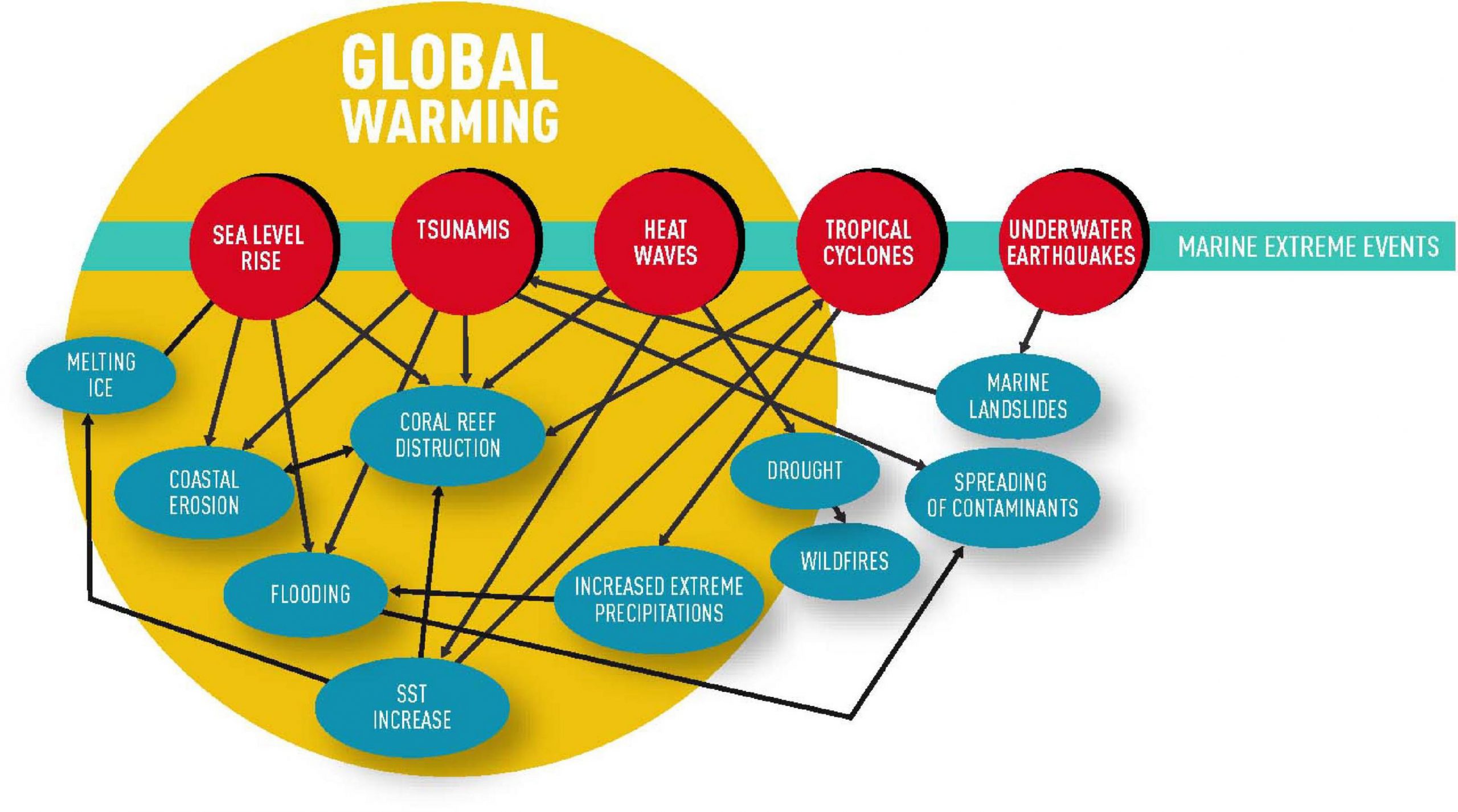Extreme are by definition catastrophic events hardly predictable whose damages are often due to a combination of several different processes able to impact large areas through the triggering of domino effects. Multidisciplinary monitoring represents a key approach for understanding the evolution of the complex dynamics implicated with these kind of events. This paper highlights the advantages in using Research Infrastructures’ (RIs) to address the study of Extreme Events, fostering the needs for interdisciplinary long-term and high-resolution data to better assess and quantifying the complex mechanisms governing dynamical processes and their possible interactions. Since no single RI can cover the whole complexity of global marine processes, complementarity, interoperability and collaboration among different marine RIs are effective opportunities to boost the ability of replying to specific global needs, as the extreme event evaluation, and enhancing the possibility of calibrating reliable predictive models. Here is a review of the knowledge to date focusing on the analysis of some main marine extreme event as heatwaves, tropical cyclones, extreme sea levels, underwater earthquakes and tsunami which all illustrates the importance of strengthening collaborations among RIs.


